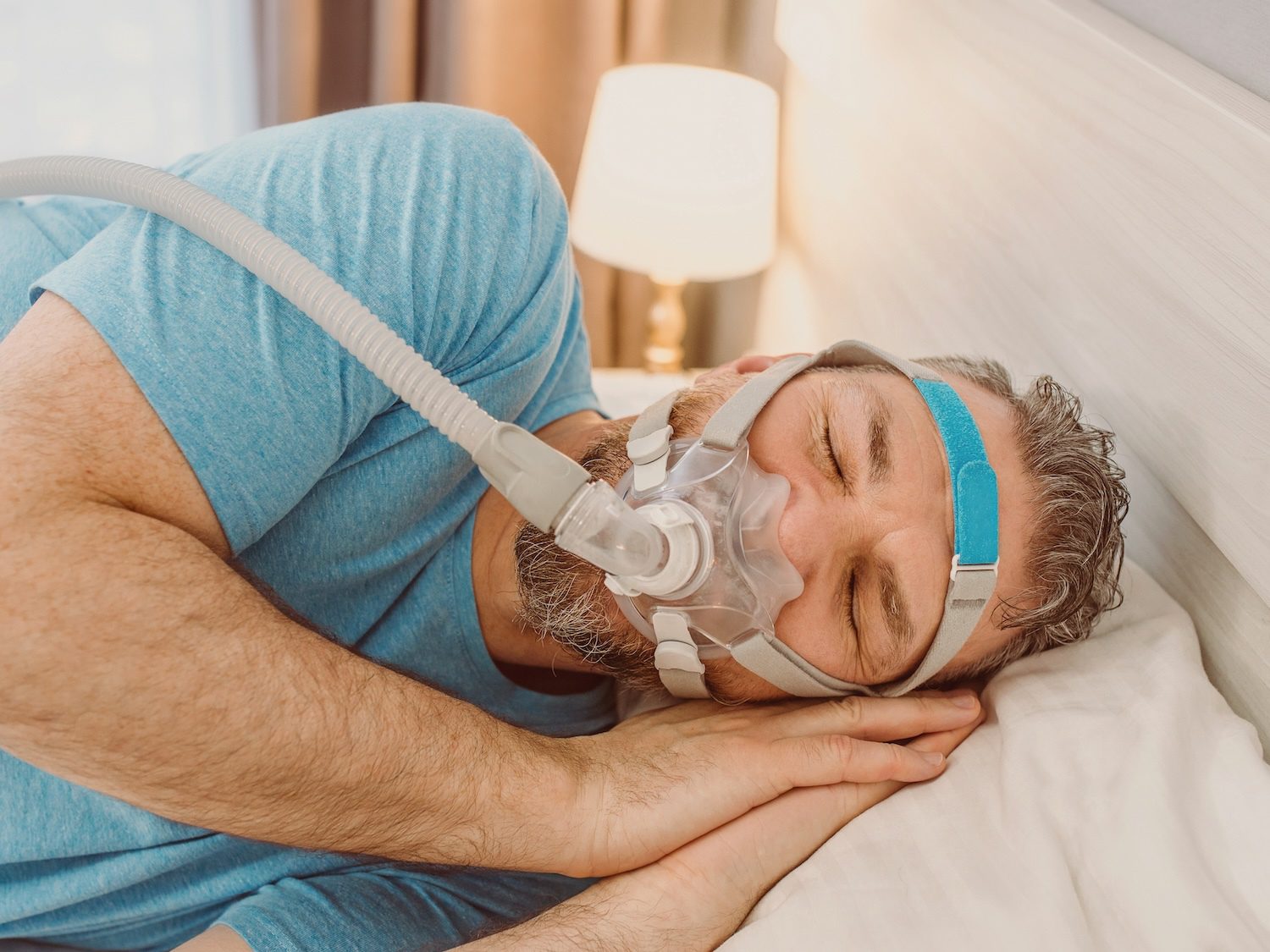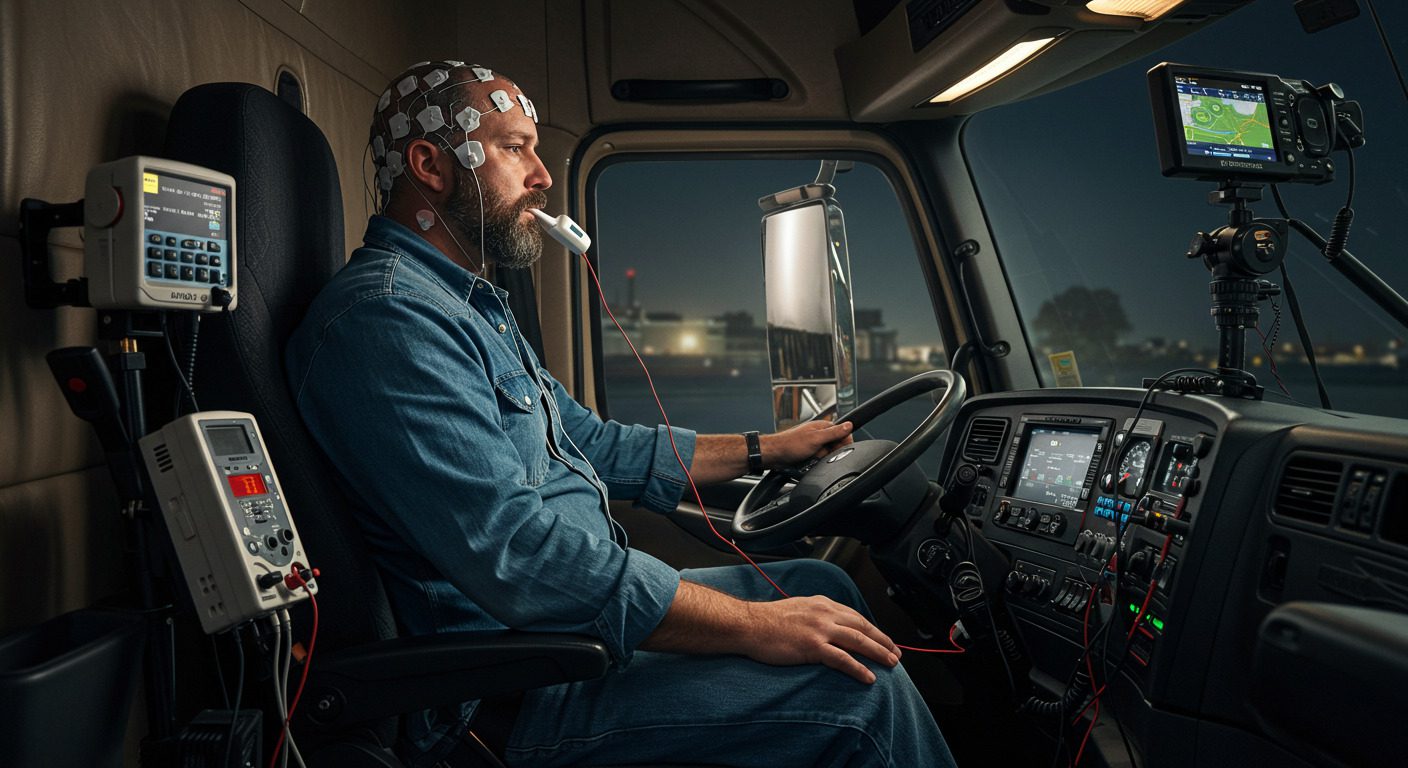A Global Crisis in Sleep Heath and Its Impact on Safety-Sensitive Jobs

By Mary Convey, Vice President of Corporate Health and Safety Solutions, SleepSafe Drivers
On June 14, 2021, Philips Respironics issued a global recall of 4 million respiratory devices, including continuous positive airway pressure (CPAP) and bilevel positive airway pressure (BiPAP) machines. It was found that a polyurethane foam used in sound abatement could possibly degrade into particles that may enter the device’s air pathway and be ingested or inhaled by the user. Durable medical equipment companies were directed to remove the recalled machines from shelves.
According to Philips’ recall letter, “These issues can result in serious injury which can be life-threatening, cause permanent impairment and/or require medical intervention to preclude permanent impairment.” The recall information can be viewed at www.usa.philips.com/healthcare/e/sleep/communications/src-update.
Cumbersome Recall Process
The issue with Philips’ CPAP and BiPAP recall is that it put the responsibility on the patient to learn about the recall via news, friends, physicians or their durable medical equipment providers. Assuming the patient did find out about the recall, the next step would be to log in to a website and enter their device's serial number to see if it was included in the recall. Once confirmed, the patient would receive a confirmation number and the waiting game would begin. Patients could wait for one year, or even two, to get a replacement device.
In November 2021, Philips broadened its registration website to include questions around occupations that may be considered safety sensitive. Checkboxes now identify if the end user is a commercial driver’s license holder, pilot, crane operator, etc. Phillips also added questions around comorbid health conditions and previous drowsy driving episodes.
Philips has now been ordered by the U.S. Food and Drug Administration (FDA) to have better and more regular communication with its end users about the recall. Providers, such as SleepSafe Drivers, joined with organizations, such as the American Trucking Association, to appeal to Phillips to prioritize those whose jobs require CPAP/BiPAP adherence, asking that they be placed at the front of the line for device replacement.
Safety-Sensitive Employees Left in a Lurch
Folks in safety-sensitive roles depend not only on a full night's sleep, but also on healthy, restorative sleep. This can be a struggle for those who suffer from a medical condition where their airway closes and obstructs during the night, causing snoring, breathing cessation and a drop in oxygen levels, not to mention disrupted sleep from the body's natural arousal to initiate breathing again. This recall put the restorative rest of many on hold if not on high alert.
Lack of quality sleep is a huge safety indicator for many involved in driving, mining, flying, heavy construction, railways and operation of heavy equipment, where being fatigued can be a game-changer that increases the risk of crashes or mishaps.
Supply Chain Interruption, Again
With pandemic-related computer chip shortages and supply chain issues continuing, the other top CPAP manufacturers have been unable to increase production enough to fill a 4-million-device void. Providers have been scrambling to find replacement sources with the quality of manufacturing expected from the top historical makers of the devices. Some, of course, are better than others and the supply and demand equation is reflected in higher prices.
Fit for Duty Requires Adherence and Efficacy
In the workplace, some employees may be required to complete a fit-for-duty physical exam. If an employee is found to have sleep apnea, they may be required to show compliance and or therapy adherence. With the recall, what will happen to them? As an employer, do you know if your employees have sleep apnea? Do you know if they are on a recalled device or a non-recalled device? Do you know if they have heard of the recall and registered their recalled devices? Do you know if they have received a replacement device?
These are some of the many factors to be considered. In the trucking industry, we have all heard about the driver shortage. This device shortage may compound that crisis. Are there drivers being “pulled from the road” because they were unable to produce a CPAP/BiPAP compliance report since June 2021?
Another question facing drivers who rely on these breathing aides: Will their health insurance pay for them to get a new PAP? Most health plans do not pay for a new machine. As a result, many fleet safety teams are offering to pay for drivers to get a new device.
Alternatives to PAP Therapy Remain Slim
On Sept 29, 2021, the Federal Motor Carrier Safety Administration (FMCSA) held a three-hour call with its medical review board to discuss if there could be substitute devices and/or waivers for drivers who were affected by the CPAP/BiPAP recall. Despite several discussions around allowing oral appliances to replace requirements for the recalled devices, FMCSA never made a final statement or position other than offering the possibility of giving DOT-certified medical examiners the discretion to issue 90-day medical card waivers.
Makers of oral appliances have long awaited a clear FMCSA position on their devices. The challenge lies in the lack of an easy and economical standard for measuring the compliance or efficacy of oral appliances. Advancement in technology is helping and a new device that meets compliance requirements is on the horizon for FDA approval and a 2023 release. New implantable devices are hitting the market but with stringent criteria for qualification and a high private-pay cost. In addition, some oral appliances cost far more than PAP machines.
Getting Sleep Right
How can we know who is or is not getting restorative sleep? A tank truck driver, your child’s school bus driver, a passenger train engineer or the crane operator hoisting concrete barricades above a busy highway, all may be at advanced risk for fatigue crashes due to the PAP device shortage.
If you have employees in safety-sensitive roles, it might be time to address this issue. Offer assistance to help pay or fully reimburse for new devices, if your employees can source one. Find a specialized company that works in your industry field providing sleep and fatigue policy resources.
It is always wise to address fatigue management and sleep issues before crashes happen or health declines. The NAFMP is a solid resource for those wanting to gain practical guidance and policy suggestions around fatigue management, sleep and shift work. It is a comprehensive resource for employers and the public sector as well: www.nafmp.org.
As things stand, many folks who rely on a CPAP or BiPAP are facing a choice between the dangers of using a recalled device versus the risks associated with missing out on restorative sleep. Meanwhile, it might be time for all of us to apply the adage of "don't put your eggs all in one basket" towards a market shift in the manufacturing and distribution of CPAP and BiPAP therapy devices.
More Reading

The Recipe for a Successful Fatigue Management Program

